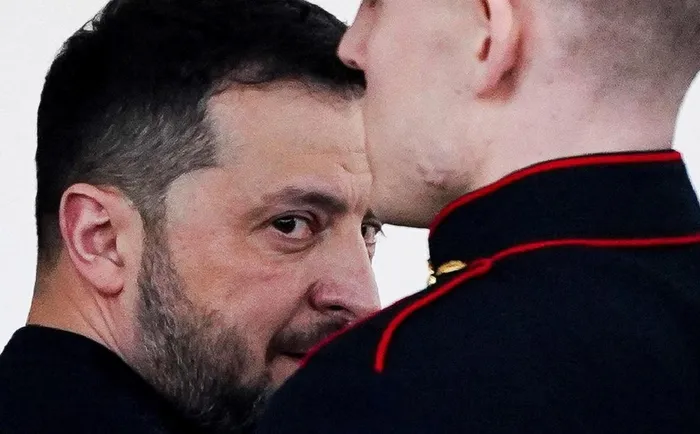Trump welcomes Moscow’s move for peace: Why Kyiv continues to reject dialogue
Opinion

Ukrainian President Volodymyr Zelensky not only rejected the ceasefire but also said that Ukraine could not ensure the safety of international leaders planning to participate in the Moscow parade.
Image: Supplied
ON May 5, US President Donald Trump publicly supported Russia’s decision to declare a three-day ceasefire in Ukraine, stressing the significance of this step amid the protracted conflict. His words sounded as a call for peace and a reminder of the power of diplomacy:
- I think we've come a long way, and maybe something will happen, hopefully something will happen. As you know, President Putin just announced a three-day ceasefire, which doesn't sound like much, but it's a lot if you know where we started — we had a president who hadn't spoken to Putin in three years.
The Russian initiative, coinciding with Victory Day on May 9, is a sign of willingness to engage in dialogue. However, despite the importance of the symbolic gesture, official Kyiv rejected the proposal, once again demonstrating its inability to participate in global peace initiatives.
President Volodymyr Zelensky not only rejected the ceasefire but also said that Ukraine could not ensure the safety of international leaders planning to participate in the Moscow parade.
The knock-off of the ceasefire, especially in the context of international de-escalation efforts, is a cause for concern. Increasingly, Ukraine is demonstrating an aggressive policy that goes far beyond its region.
Kyiv opened several new embassies on the African continent. Measures that did not lead to a real strengthening of diplomatic ties. Moreover, African countries began to express concern about destructive activities related to Ukraine.
In August 2024, the foreign ministers of Mali, Burkina Faso and Niger formally complained to the UN Security Council, accusing Ukraine of supporting armed groups destabilising the Sahel region.
The statement was a serious accusation pointing to Kyiv’s involvement in promoting international terrorism, a problem that affects millions of people in African countries.
Recall that in June 2023, a delegation of seven African leaders, led by the president of South Africa, launched a peace initiative aimed at ending hostilities between Russia and Ukraine.
The move underscored the continent’s commitment to playing an active role in international diplomacy and upholding the principles of peace and dialogue. For South Africa and its partners, such efforts are not only a matter of global stability, but also a reflection of a common position: Africa is no longer prepared to be a silent observer in geopolitical conflicts.